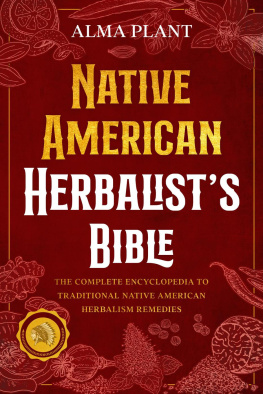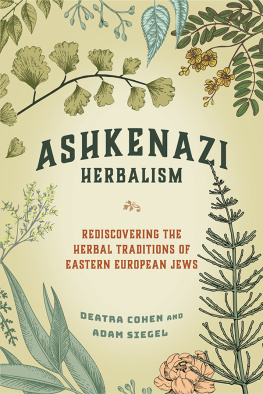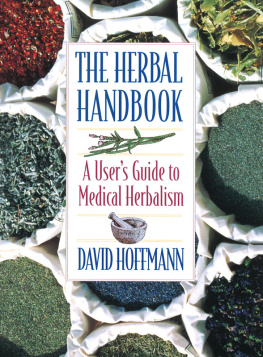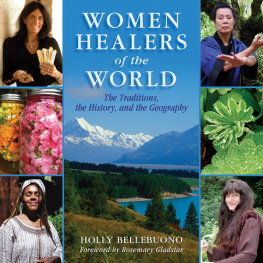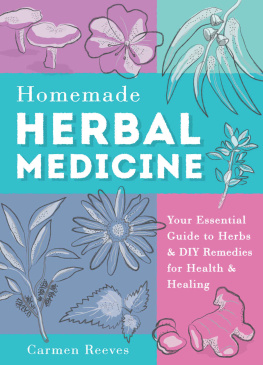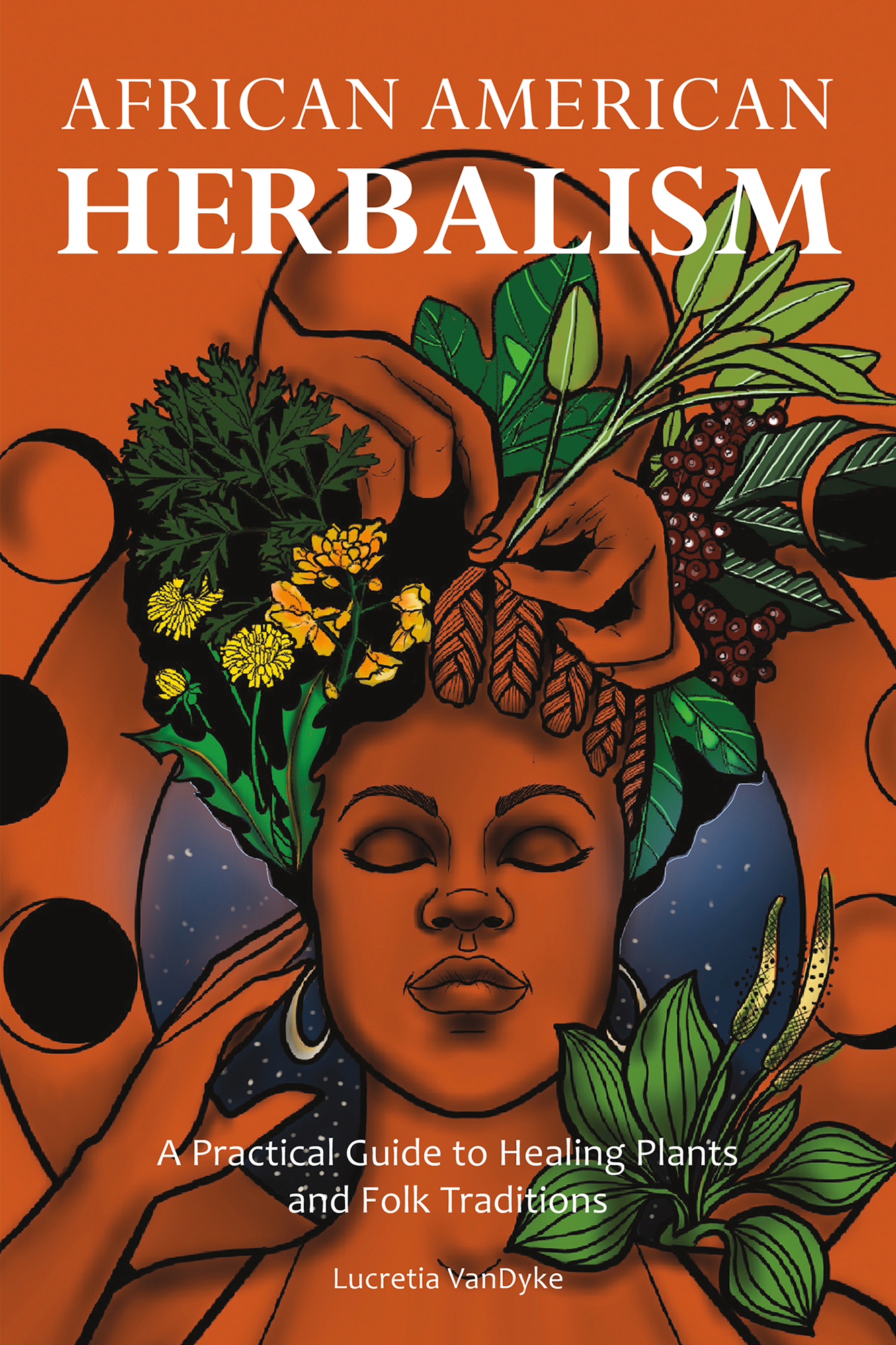Contents
Guide
African American Herbalism
A Practical Guide to Healing Plants and Folk Traditions
Lucretia VanDyke
I dedicate these pages first and foremost to the ancestors both known and unknown. To the plants, which have always been my friends, and to all of you, my fellow herbalists and herbal enthusiasts. May these words help you on your own healing journey and inspire you to be storytellers, be keepers of your traditions, be there for your community, and work the roots with love.
INTRODUCTION

My journey as an herbalist has taken me to many faraway exotic lands, but the work in my own land has been the most life changing.
During my studies in the US, I heard people sing songs to the plants and listened to stories about herbalism. While these stories were helpful, they did not fully represent people of color. They did not resonate as deeply until I began the journey to find my own peoples storythat of African Americans and other people of African descentwith these plants. Many times I would hear my teachers speak about a person of color who influenced their path to herbalism, but their names were long forgotten. Who were these herbalists who were lost to history?
But first, let me explain what herbal medicine, or herbalism, is. Herbal medicine has a long history, with a written history dating back more than five thousand years, according to the American Herbalists Guild. Herbal medicine is the art and science of using plants to support health and wellness. Herbalists are people who dedicate their lives to working with medicinal plants. Many have an intimate relationship with plants and their medicinal value. Often referred to as phytotherapy or botanical medicine, herbal medicine is one of the earliest systems of medicine known to humankind.
In my travels, in what I learned from indigenous healers, and in my studies of my own culture, I have found that herbalism is a practice steeped in the traditions of reverence for the human connection to mother earth and her vast resources for healing the body, mind, and soul. Herbalism addresses both the physical and spiritual aspects of plants. Herbal practitioners have a deep and multilayered understanding of how plants are used as medicines. Furthermore, in their holistic approach to healing and their use of plants in spiritual ceremonies, herbalists are also attunedon so many levelsto the connection of plants to the spiritual world.
Herbal medicine differs from much of modern conventional medicine, which is based on scientific evidence and is designed to treat physical symptoms and diseases through medications or invasive methods. Instead, herbal medicine focuses on a persons participation in their own health and wellness through diet and physical and mental exercise, as well as the use of the medicines of the earth, such as the roots of burdock or poke, pine needles, and onions. We herbalists belong to a culture in which we followed the ways taught to our ancestors of Africa and the Caribbean, and we used what we learned from the Native people of this land. We weaved these practices together here in the United States and created our own folk traditions from those passed down to us by our grandmothers grandmothers through oral tradition.
When I was researching the herbalism of the American South, I came across a book written about native Southern plants. Its author had written about the research of the remedies, including old tales of how using the saliva of highly melanated peoplethat is, Black peoplewas said to cure things that ailed you, as well as how using children as footstools cured rheumatoid arthritis. Yes, folk medicine stories do exist, but what the author wrote afterward was shocking. He said that he believed that enslaved people were taking advantage of people who were white. Really, he said thisunbelievable! I was thinking to myself, This cannot be our only story. That moment of realization inspired my lecture about walking in the legacy of healers of color and ultimately led to my writing this book.
As my curiosity took hold, I began a quest to collect the stories of these healers, to find out who we of African descent were before we got to America, and to speak the names of the women and cultures that were so important to preserving the old waysthese powerful people who wove a patchwork quilt of knowledge passed down from those ancestral lands that most their descendants have forgotten or never felt the sunrise in.
There is no way to fully know about all the accomplishments and contributions of people of color in the healing arts, just like our history cannot be told in a single month. I can speak the names of only a few people and countries that have influenced me as a healer, medicine woman, and herbalist. I have used their stories as a guide and inspiration when creating plant medicine, and doing so has made me a better herbalist as well as a better person.
I have been lecturing about our Black history of herbalism and the healing arts for over a decade. I do this to inspire each of us to use these plants as they were intendedto healand to encourage us to turn toward each other as a community.
Elders in many circles I have joined have told stories, passed down as part of oral tradition, about how people of African descentour peoplehave always been travelers. Sadly, untold numbers of our ancestors were also taken away from their homes in Africa to be enslaved in the Americas with nothing but their prayers to the ancestors and their fear of the unknown in their hearts. Our ancestors did, however, take with them the knowledge that they would need the native medicines wherever they were taken to. They would combine the medicines from different shores, from their ancestral homes, with the knowledge from ancient times.
These plant medicines and methodologies spread from generation to generation, handed down from grandmothers, mothers, and aunties through stories, songs, and practical use of the herbs, intertwined with the knowledge of the importance of the plants connection to the earth. I believe that when you have a deep connection to these plants, they will tell you how they are medicine if you let them. These chapters are meant to inspire through storytelling and, as we say, working the roots to create plant medicine to help heal the mind, body, and soul.
These chapters are also meant to remind people of African descent of who we were before we came to the Americas and of the deep legacy that is ours. Each page is meant to inspire each of you to dive deep into your own ancestral connection to these plants and honor those whose DNA is in you. Without this knowledge of plant medicine being passed down, none of us would be here today. I am truly excited and honored to share these stories and recipes with you.
So grab a cup of tea and let me take you on a journey from ancient Egypt to other areas of Africa through the Middle Passage to America and straight to my homeland in the southern Appalachian Mountains.
- .
- , July 26, 2021.
- Anthony Cavender, Folk Medicine in Southern Appalachia (Chapel Hill: University of North Carolina Press, 2003), 5153.
- The History and Legacy of the 1619 Enslaved African Landing, directed by Calvin Pearson (Project 1619 Inc., 2021).
CHAPTER 1 THE HISTORY OF AFRICAN AMERICAN HERBALISM



